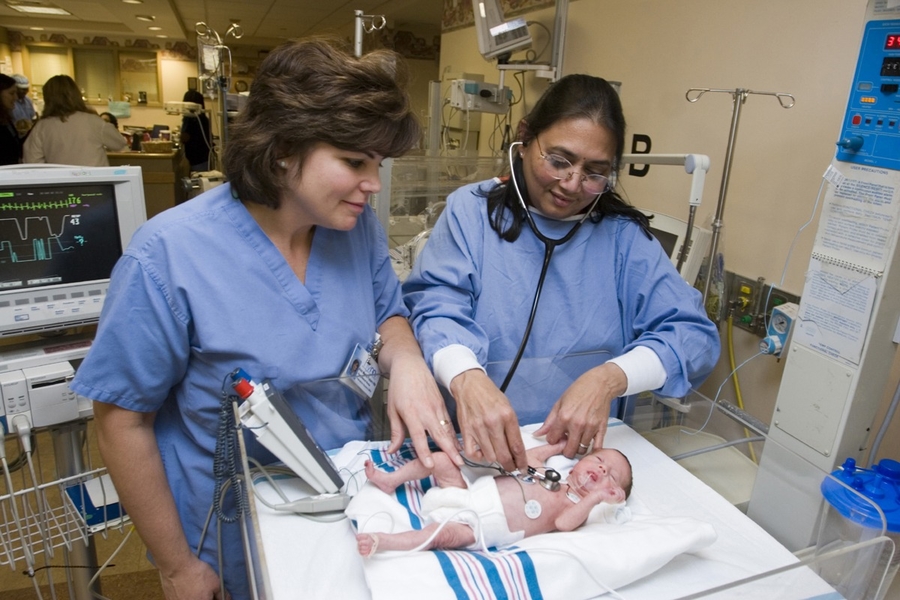
Neonatal Diseases In Children: What Can You Do
30 Jan 2018 | 4 min Read
Babychakra
Author | 1369 Articles
What are neonatal diseases?
Neonatal diseases are diseases that exist before and during birth or those that develop during the first few weeks after birth, irrespective of the cause of the disease. The first 28 days after birth is the most critical period for the child and is known as the neonatal period. It is in these first 28 days after birth that healthy feeding practices are established. Babies are most vulnerable to infections during this period and need maximum care and protection.
List of common neonatal disorders:
Many neonatal diseases tend to resolve by themselves and require no medical intervention. Here is a list of a few infant diseases that commonly ail newborns.
1. Jaundice: Many healthy babies develop jaundice in the first few days of birth. This is due to the build up of bilirubin in the bloodstream. The baby’s liver is not completely developed and cannot effectively remove the bilirubin from the bloodstream. Also, there is a change in haemoglobin from fetal to adult haemoglobin at birth, causing the jaundice. while most often this settles spontaneously without any treatment, keeping the baby undressed under special lights for a few days might be needed in certain cases.
2. Respiratory problems: It normally takes a baby few hours to develop a normal pattern of breathing. Sometimes, the baby may have a problem breathing normally due to a blocked nasal passage. In this case, the doctor may remove the blockage by the use of nasal drops and a bulb syringe.
3. Baby blues: If your baby’s skin turns blue and your baby shows signs of difficulty in breathing and feeding, it may indicate problems with the baby’s heart or lungs. This is a serious concern and requires immediate medical attention.
4. Abdominal distension: Most babies tend to have a large belly after feeding, and this is normal. However, if the baby’s stomach feels hard or swollen. and he/she has not passed bowels or is vomiting, then it indicates an intestinal problem that requires immediate medical attention.
Preventing neonatal infections
Though it is difficult to protect newborns against baby diseases, recent advances in medical care have made it possible to prevent the occurrence of most neonatal diseases. Simple things that can protect against common neonatal disorders are listed below.
1. Breastfeeding: New born babies do not have a well-developed immune system. The immune system of babies gradually develops as they grow. Colostrum- the first milk secreted by the mother is vital for the development of the immune system. It is sticky, yellowish in colour, and highly nutritious for the baby. It is full of proteins and antibodies that help to develop the baby’s immune system and keep the baby healthy in the initial weeks. Also known as liquid gold or immune milk, it is rich in protective white blood cells that help to protect the baby against a host of viral and bacterial infections.
2. Neonatal screening: Neonatal screening is a series of tests performed on the new born baby within the first 48 hours of birth that help to detect serious health conditions in the baby that may not manifest until later. The baby is screened for a wide range of medical conditions such as heart problems, certain genetic and metabolic conditions. New born screening helps to diagnose problems before the symptoms manifest and help to prevent against serious medical conditions such as illness, intellectual disabilities, and even death. Neonatal screening involves three distinct tests:
- Blood test: A few drops of blood are taken from the baby’s heel for examination.
- Pulse oximetry: A sensor called pulse oximeter is placed on the baby’s skin, which measures the amount of oxygen in the blood.
Neonatal screening is generally recommended in mothers who have a history of medical disorders, have had maternity problems, or are at a high-risk age for maternity.
Disclaimer: The information in the article is not intended or implied to be a substitute for professional medical advice, diagnosis or treatment. Always seek the advice of your doctor.
Also read: Blocked Tear Duct: Symptoms, Causes And Treatment
A


Related Topics for you
Suggestions offered by doctors on BabyChakra are of advisory nature i.e., for educational and informational purposes only. Content posted on, created for, or compiled by BabyChakra is not intended or designed to replace your doctor's independent judgment about any symptom, condition, or the appropriateness or risks of a procedure or treatment for a given person.
